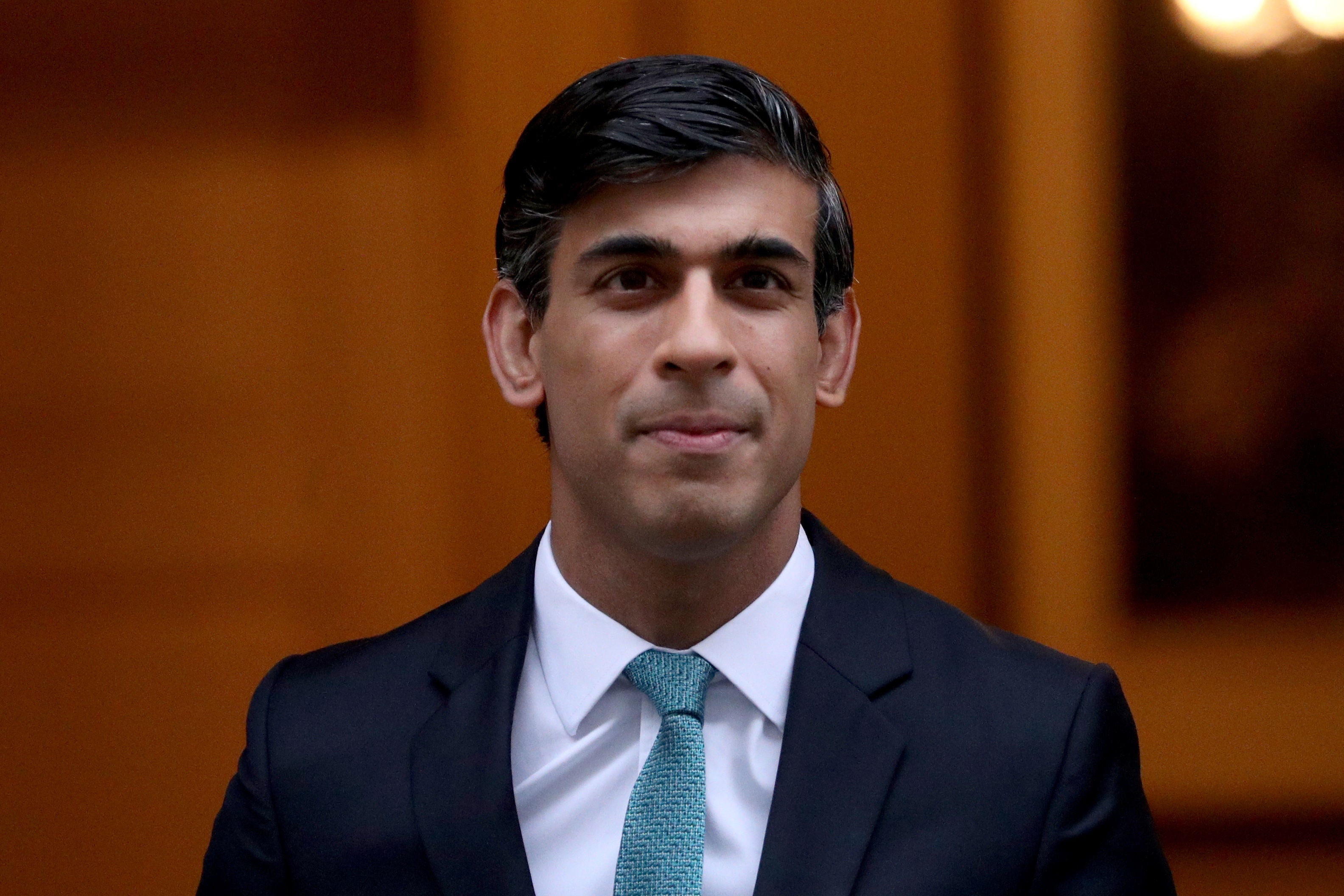Rishi Sunak urged to boost pandemic recovery with £190 billion stimulus
‘This is not the moment for caution: the risk of doing too little far outweighs the risk of doing too much,’ says IPPR think-tank

Your support helps us to tell the story
From reproductive rights to climate change to Big Tech, The Independent is on the ground when the story is developing. Whether it's investigating the financials of Elon Musk's pro-Trump PAC or producing our latest documentary, 'The A Word', which shines a light on the American women fighting for reproductive rights, we know how important it is to parse out the facts from the messaging.
At such a critical moment in US history, we need reporters on the ground. Your donation allows us to keep sending journalists to speak to both sides of the story.
The Independent is trusted by Americans across the entire political spectrum. And unlike many other quality news outlets, we choose not to lock Americans out of our reporting and analysis with paywalls. We believe quality journalism should be available to everyone, paid for by those who can afford it.
Your support makes all the difference.Rishi Sunak is being urged to quadruple crisis spending to £190 billion in order to restart the economy when the country gradually emerges from the coronavirus lockdown.
As the chancellor prepares to unveil the Budget next month, the Institute for Public Policy Research (IPPR) warned the UK economy risks falling into a “stagnation trap” without a further package of spending from the Treasury.
Researchers at the think-tank calculate that a bold recovery plan worth £190 billion — or 8.6 per cent of GDP — could support business and households hardest hit by the pandemic and restore jobs.
In their report — “Boost it like Biden” — the authors say the planned UK stimulus in “less than a quarter of that envisioned by the US, adjusted by the size of the economy” after president Joe Biden revealed a $1.9 trillion package last month.
“At this March’s Budget, the chancellor should look to his transatlantic counterparts and pass support measures commensurate to the size of the economic peril the UK is in,” the IPPR said.
The head of the organisations centre for economic justice, Georgia Dibb, said: “It’s clear that the UK economy needs far bolder action that the government currently seems prepared to consider.
“This is not the moment for caution: the risk of doing too little far outweighs the risk of doing too much.”
The report adds: “The economic boost so far announced by the chancellor for the year April (fiscal year 2021/22) is worth about two per cent of the value of the entire UK economy before the pandemic (2009).
“A significantly more powerful boost (£190 billion), equivalent to 8.6 per cent of the value of the economy, would deliver faster recovery, stimulate business investment to its pre-pandemic level and halve the number of job losses — without causing high UK inflation”.
Senior economist and lead author Carsten Jung said the chancellor should use the Budget to introduce a package of measures to “match the scale of the economic peril the UK faces”.
He added: “The Biden administration’s plan shows what is possible. And it highlights the scale of support needed to bring economies back to pre-crisis levels of activity, or else risk falling into ‘stagnation trap’ — a situation of sluggish recovery and permanently diminished growth.”
“All in all, the risk of doing too little far outweighs the risk of doing too much. Joe Biden has understood this. Rishi Sunak should follow his lead.
“Many agree with the need for a significant boost, but worry that we cannot afford it. That profoundly misunderstands the financial situation we’re in. Eminent institutions including the International Monetary Fund and the OECD now advocate a sizeable stimulus for economies like ours, financed by borrowing, as interest rates are so low and the scope to generate rapid growth is so large.”
A Treasury spokesperson said: “Our priority throughout the past year has been to protect as many jobs as possible – which is why we’ve invested more than £280 billion to support jobs, businesses and our public services.
“We will continue to invest in protecting and creating jobs through the remainder of the pandemic and through the recovery, and we will set out further details via the next stage of our plan for jobs at the upcoming Budget.”




Join our commenting forum
Join thought-provoking conversations, follow other Independent readers and see their replies
Comments